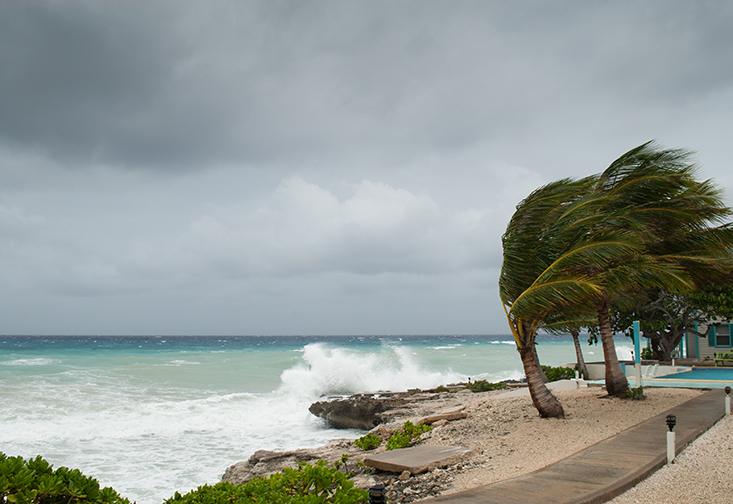By Matthew Cimitile, University Communications and Marketing
Experiences and studies show, when natural disasters strike, marginalized communities suffer the most.
With hurricane season approaching, the USF St. Petersburg Initiative on Coastal Adaptation and Resilience (iCAR) is working to enhance disaster preparedness, streamline recovery efforts and provide greater access to resources within such communities.
iCAR is hosting a public town hall in collaboration with Pinellas County Emergency Management on June 10 from 10 a.m to noon at the Mattie L. Gardner Center in St. Petersburg, Fla.
The event will provide individuals a space to share their experiences and voice their concerns on preparing for and recovering from disasters. It will also share information on neighborhood-level initiatives geared towards increasing the community’s overall resilience.
“Natural disasters make people who are chronically disadvantaged or lack critical resources even more vulnerable,” said Barnali Dixon, executive director of iCAR and professor of geographic information systems and remote sensing at USF St. Petersburg. “This town hall is part of a series of conversations to better understand certain communities needs ahead of time, so we can plan and provide resources that meet those needs.”
The town hall will cover topics such as inflation, food deserts, housing, health care and more. Participants will be asked:
- What are the major concerns that impact disaster preparedness?
- How has inflation impacted disaster preparedness and food security?
- What information and resources would they like to know more about?
“We don’t know what we don’t know. But this town hall provides a great way to get people to come out and simply listen to one another,” said Mary Burrell, whole community engagement program lead at Pinellas County Emergency Management. “By listening to our residents, it helps to inform how we prepare for the coming hurricane season.”
A critical component of the town hall will be introducing the concept of a “storm squad” to community members. For the south St. Petersburg community, the “storm squad” will consist of trusted neighborhood leaders, such as pastors, who will distribute critical information leading up to an approaching hurricane and serve as liaisons between government officials and the community in the event of an emergency.
“The idea is to create a street team of leaders, who already have that local knowledge and trust, to canvas neighborhoods for disaster relief. They will be essential in connecting the dots with officials in emergency management and local government, so they know what is taking place on the ground,” said Erica Hall, executive director of the Florida Food Policy Council.
Assisting the “storm squad” in creating a more resilient community in the face of natural disasters will be CRIS. iCAR’s Community Resilience Information System is an interactive platform that uses citizen engagement and crowdsourced data from St. Petersburg residents to gain insights on the local impacts of climate change.
CRIS allows residents to input data on their phone related to local flooding and power outages, which can then be used by government officials and neighborhood leaders to make decisions about policy and resource allocation. The data also allows emergency managers to identify areas with concentrations of people who need transportation assistance, food or are reliant on power for medical needs.
“The overall goal of these town halls, the storm squad team and CRIS is to empower the community and overtime we hope reduce marginalization,” Barnali said.
The June 10 town hall is part of a series of past and upcoming community discussions organized by iCAR, Pinellas County Emergency Management and local partners. Public input collected at each will help develop a community action plan that addresses the unique needs of marginalized and vulnerable communities.
Organizers said the plan will help shape future responses in these neighborhoods when it comes to disaster preparedness and recovery, from accessing nutritious foods to evacuation planning to how to fill prescriptions during power outages.
“We hope that our residents will see this as an opportunity to come and share the challenges that they have experienced in the past,” Burrell said. “If they are able to share with us what makes preparing and recovering from disasters difficult, we are there trying to make things fairer and make sure our neighborhoods get the services that they should have.”
